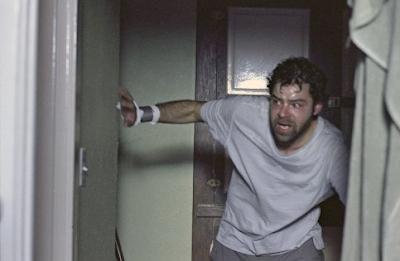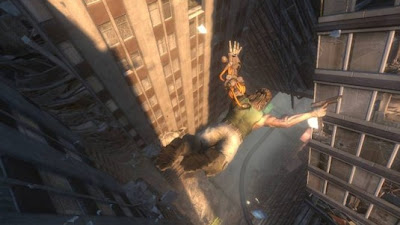
Avatar certainly could have been a disaster, a technological husk with no soul. Worse, the reliance on CG characters could have landed it smack dab in the uncanny valley...the realm where special effects wizards attempt to match reality but reap unsettling and awkward results. Beyond all reasonable expectations, however, Avatar must be considered a smashing success.
It's easy to see why 3D has been pushed in lock step with Avatar; the film melds CG and reality to create breathtaking scenes and believable characters. The eye candy on offer simply hasn't been paralleled this year. But Avatar's most significant technological feat lies in its ability to confuse the viewer. Halfway through, I had entirely lost track of what was and wasn't CG. The main characters, though some of them were alien, appeared to be fully-fleshed entities, and the world surrounding them was simultaneously impossible and yet flawlessly presented before my eyes.
Beautiful scenery and high octane action can only carry a film so far, but Cameron's screenplay, though not without a few warts, succeeds in inviting viewers to a new world and lulls them into caring for its characters. The barebones story isn't particularly complicated, and many of the plot points are telegraphed well in advance. The focus here is on a simple story told well. Cameron takes his time introducing his world and slowly unraveling its mechanics. The 162 minutes are judiciously apportioned such that the pacing avoids the twin pitfalls of skipping proper character development and drowning in excess exposition. Some of the characters are necessarily flat, and a handful of one-liners fall a bit short, but most of the writing implies a sure hand at work.
Of course, Cameron writes with a message, and the elegance of his delivery comes very close to perfection. Science fiction and fantasy often deliver morally or politically charged messages via metaphor, and Avatar can be viewed as one epic metaphor. Said metaphors risk crossing the line from art to rhetoric when they try to attach explicit anchors to the real world, and Cameron's script commits this error in two unrelated lines. Still, considering the length of the film and the otherwise effective development of the metaphor, this is a decent record.
On top of these aspects of the film are more conventional concerns such as acting. Sam Worthington, Segourney Weaver, and a host of other notables fill their roles with polish, but again, the true acting miracle in Avatar revolves around the CG characters. Never will a glitch remind the viewer that they aren't watching humans. The wizards behind Avatar have managed to simulate the full breadth of human expression and movement; the execution is flawless.
Combined with another rousing score from James Horner, Avatar's superlative special effects, measured pacing, and likeable characters form an unlikely synergy. By the film's climax, my heart was in my throat every time the life of a character was threatened. Sitting through the credits, I realized that Cameron's enormous gamble had paid off. Avatar is a cinematic tour-de-force and fully deserves the accolades it will surely garner at upcoming awards shows.
Image source: hdwallpapers.in





